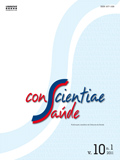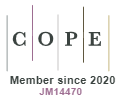Muscle dysmorphia: food intake and dietary supplements characteristics
DOI:
https://doi.org/10.5585/conscientiaesaude/2011/v10n1/2560Keywords:
Binge-Eating disorder, Body image, Diet, Dietary supplements, Resistance training.Abstract
Introduction: Muscle dysmorphia produces changes in diet. With her diet becomes protein and hipolipidic, accompanied by various dietary supplements. Objectives: To analyze the characteristics of feed of subjects with muscle dysmorphia. Methods: Transversal, descriptive, interpretive, qualitative and quantitative approach. Results: Changes in dietary practices aimed at increasing muscle mass and / or reduce body fat. Been refused calls for restaurants, meetings or dinners, because of special dietary requirements. Supplements consumed are high in protein, amino acids and thermogenic. The diet and consumption of dietary supplements are encouraged by friends, businessmen, teachers of physical education and the family. Conclusion: The excessive and uncontrolled consumption of protein and a drastic reduction in dietary fat as a consequence of the excessive desire for aesthetic change between subjects with muscle dysmorphia, reflects a serious health problem that requires official action, and proper posture in different health, especially physical education.Downloads
Downloads
Published
2011-03-31
How to Cite
1.
Azevedo AMP, Ferreira A de CD, Silva PPC da, Silva EAPC da, Caminha I de O. Muscle dysmorphia: food intake and dietary supplements characteristics. Cons. Saúde [Internet]. 2011 Mar. 31 [cited 2025 May 23];10(1):129-37. Available from: https://periodicos.uninove.br/saude/article/view/2560
Issue
Section
Applied Sciences
License
Copyright (c) 2011 ConScientiae Saúde

This work is licensed under a Creative Commons Attribution-NonCommercial-ShareAlike 4.0 International License.
Views
- Abstract 253
- PDF (Português (Brasil)) 214







